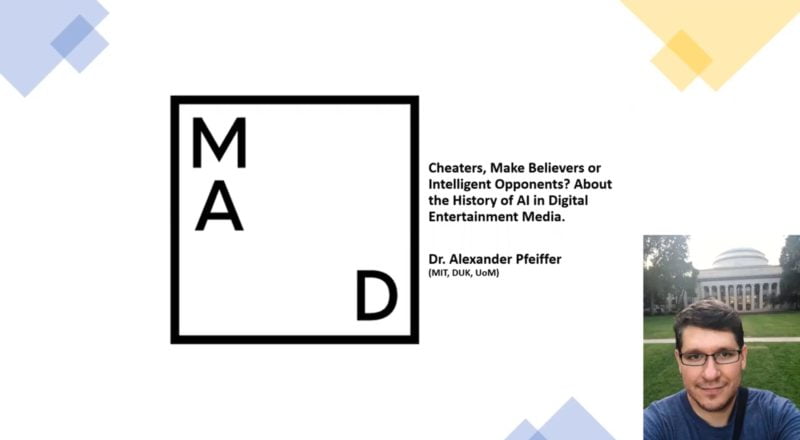Alexandra To describes some of the game design opportunities present in centering the experiences of people of color from the beginning.
Video: Jonathan Sterne, “Diminished Vocalities: On Prostheses and Abilities”
Impairments are usually understood as the physical or biological substrates of culturally produced disabilities, but Jonathan Sterne considers them as a political and theoretical problem in their own right.
Video: Eric Gordon, “Towards a Meaningfully Inefficient Smart City”
Visiting Professor Eric Gordon discusses a recent project in Boston, in collaboration with the Boston Mayor’s Office of New Urban Mechanics, called Beta Blocks, that uses meaningful inefficiency as a structuring logic for sourcing, questioning and making decisions about public realm technologies.
Eric Gordon, “Towards a Meaningfully Inefficient Smart City”
Visiting Professor Eric Gordon will discuss a recent project in Boston, MA in collaboration with the Boston Mayor’s Office of New Urban Mechanics, called Beta Blocks, that uses meaningful inefficiency as a structuring logic for sourcing, questioning and making decisions about public realm technologies.
In retrospect: Media, Arts & Design | AI Conference
What examples are to be found in the past? And what will the future look like?
Podcast: Eric Klopfer, “Design Based Research on Participatory Simulations”
CMS/W Professor Eric Klopfer and The Education Arcade are currently working on a set of “Participatory Simulations”: mobile collaborative systems-based games.
Podcast: Designing for a Neurodiverse World
Sometimes simple changes can significantly expand accessibility to people who have neurological differences like autism, dyslexia, ADHD, or epilepsy, but designers and policymakers frequently aren’t aware of issues affecting this neurodiverse community.








